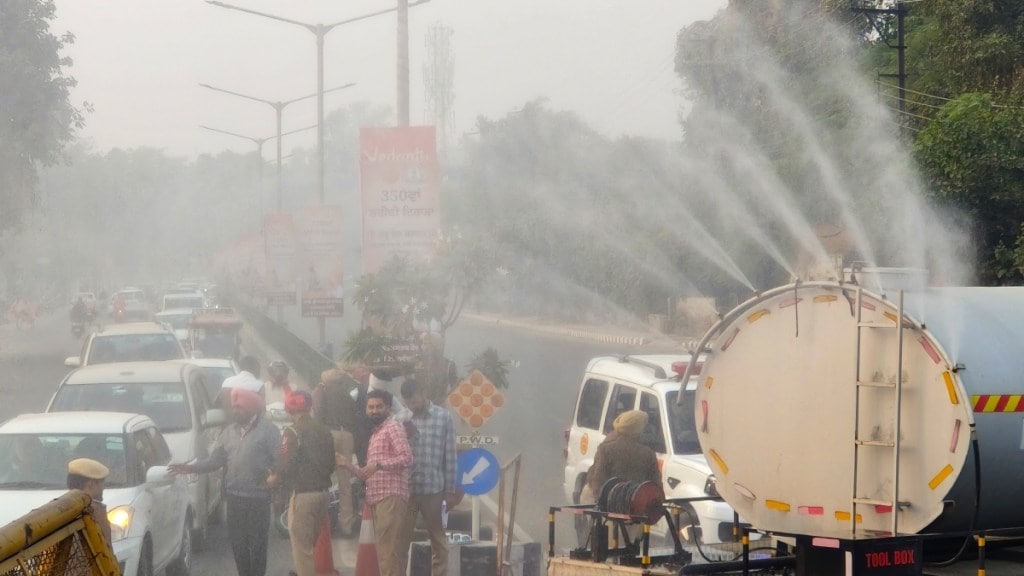Delhi-NCR’s fight against pollution has entered a more aggressive phase, with key measures such as work-from-home, staggered office timings and increased public transport now kicking in much earlier than before.
After the Supreme Court’s observations this week, the Commission for Air Quality Management (CAQM) has formally revised the Graded Response Action Plan (GRAP), shifting several important steps to lower pollution levels. This change directly affects office-goers, students, parents and daily commuters in the capital.
Work from home now applies to more people
The Delhi government has advised private offices to function with only half of their staff physically present, while the remaining employees work from home. What makes this change significant is that work-from-home will now start one full stage earlier than before. This applies not just to private offices in Delhi but also to workplaces across NCR, including Noida, Ghaziabad, Gurugram and Faridabad, if their respective state governments decide to implement it.
Municipal bodies and Delhi government departments may also announce work-from-home depending on pollution levels, while the Centre has been given the power to allow the same for central government employees. For many office-goers in Delhi-NCR, this means the option of working from home will come into effect much sooner whenever pollution begins to rise.
Schools not fully shut, may switch online depending on alerts
Schools in Delhi are currently open for most classes, but the situation remains uncertain. Earlier, Delhi and Gautam Buddh Nagar had shifted students up to Class 5 to online classes and parents are waiting for the next official update from the government.
With Delhi considering the possibility of moving to GRAP Stage IV, there is growing pressure from parents and student groups to declare online classes for all grades. The Delhi government is expected to issue a fresh notification and families are being advised to keep checking for updates as any escalation in air pollution could lead to school closures or a return to virtual learning.
Schools to stop outdoor activities
The Delhi government has asked all schools to stop outdoor activities and sports because the city’s air quality has become extremely poor. This decision comes a day after the Supreme Court advised the CAQM to look into stopping sports activities planned for November and December.
In its advisory, the CAQM said that all sports events should be postponed because pollution levels are now in the ‘severe’ range. The commission also warned that the current air quality is unsafe for children and could affect their health.
Public transport to get a boost
Delhi’s public transport system too will now be strengthened at an earlier stage of pollution than before. The government will increase the number of CNG and electric buses on the road, along with improving the frequency of Metro trains to help people shift away from private vehicles.
Lower public transport fares during non-peak hours
Authorities have also been asked to introduce lower fares during non-peak hours to encourage people to travel throughout the day instead of crowding the roads during rush hour. This is part of a broader effort to reduce congestion and cut down emissions.
Staggered office timings start earlier
The government has already changed the working hours of Delhi Government and Municipal Corporation offices to prevent everyone from hitting the roads at the same time.
MCD offices will now operate from 8:30 am to 5 pm, while Delhi Government offices will function from 10 am to 6:30 pm. These staggered timings, which earlier came into effect only when pollution became severe, will now start when the city enters the ‘Poor’ category. This approach is expected to distribute traffic more evenly and reduce the overall pollution load.
Traffic police deployment
To tackle rising emissions, traffic personnel will be deployed at major choke points from an earlier stage to ensure vehicles do not get stuck in long jams.
Uninterrupted power supply
Uninterrupted power supply will be prioritised so that people do not rely on diesel generators, which contribute significantly to pollution. Measures like public alerts and health advisories will also be issued sooner, warning people about air quality levels and precautions to take.
Residents urged to carpool and reduce car usage
Chief Minister Rekha Gupta has appealed to Delhi residents to reduce dependence on private vehicles and choose public transport or carpooling whenever possible.
The government believes that even small changes in commuting habits, when adopted widely, can make a significant difference in pollution levels. The shift in office timings is also meant to prevent a sudden buildup of vehicles on the roads at the same time.
More restrictions likely if pollution touches GRAP IV
If air quality continues to worsen and Delhi enters the GRAP Stage IV zone, stricter measures may be announced, including the possible closure of schools, tighter work-from-home rules and more urgent curbs on traffic. The government is reviewing the situation day by day and is expected to issue further updates depending on the severity of the pollution.

